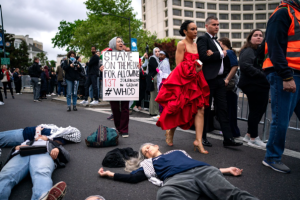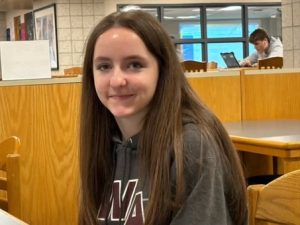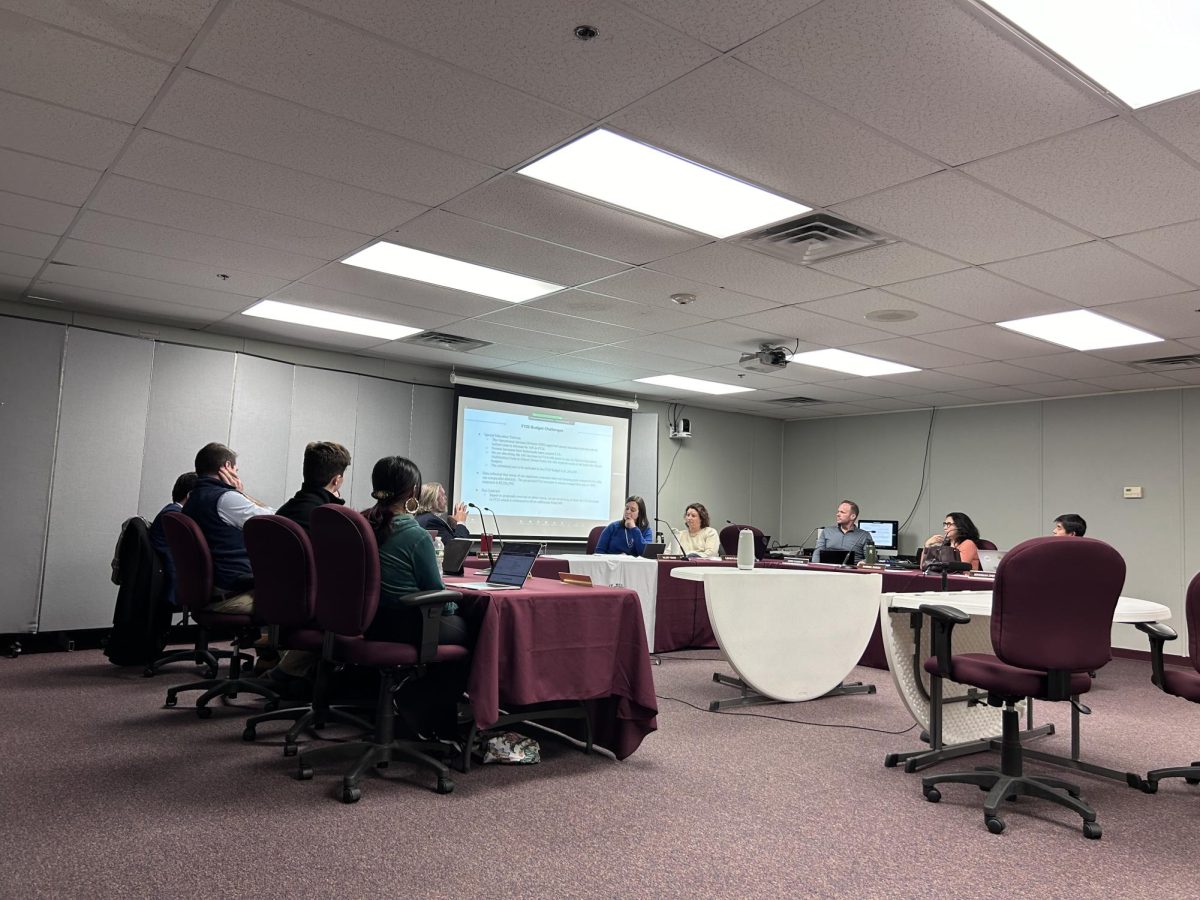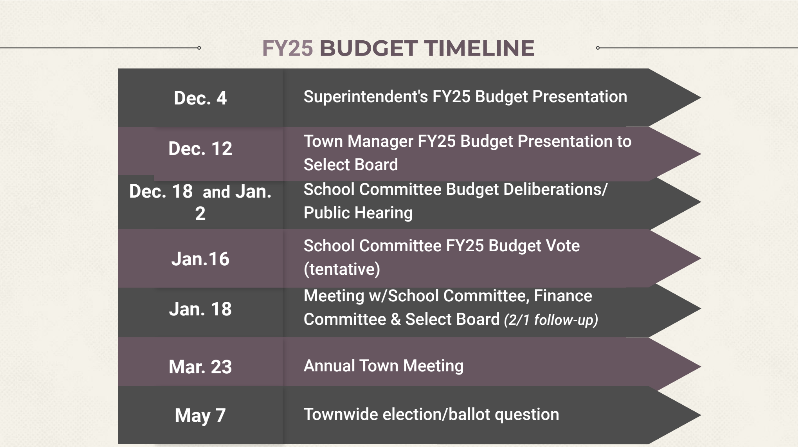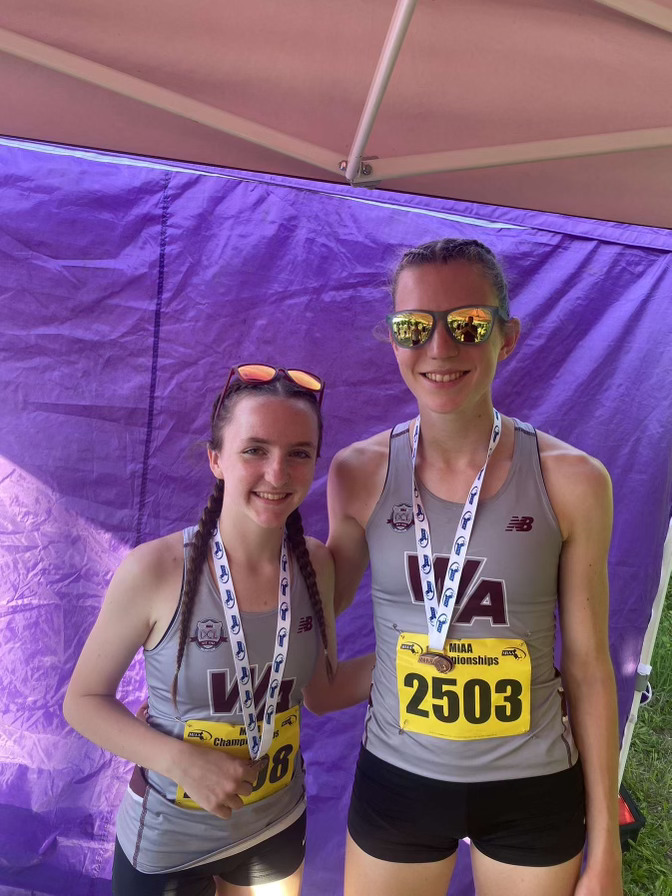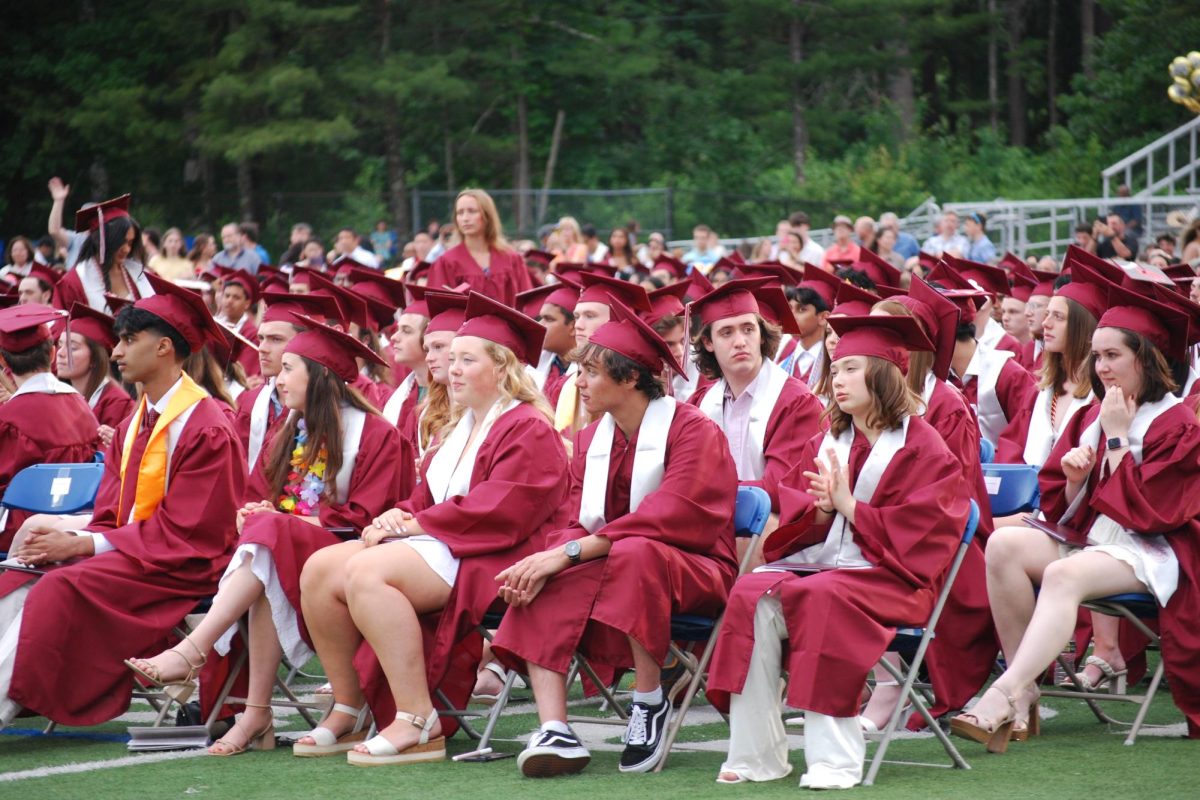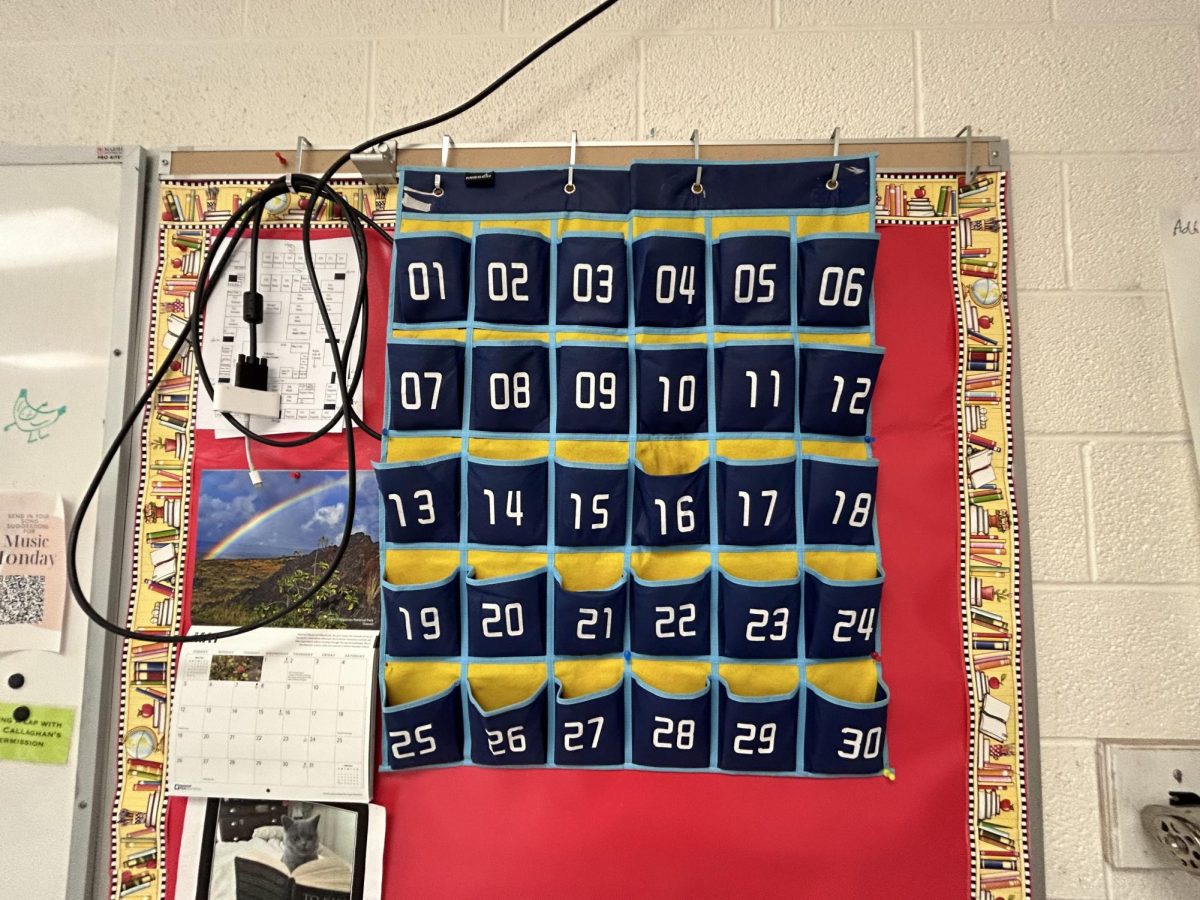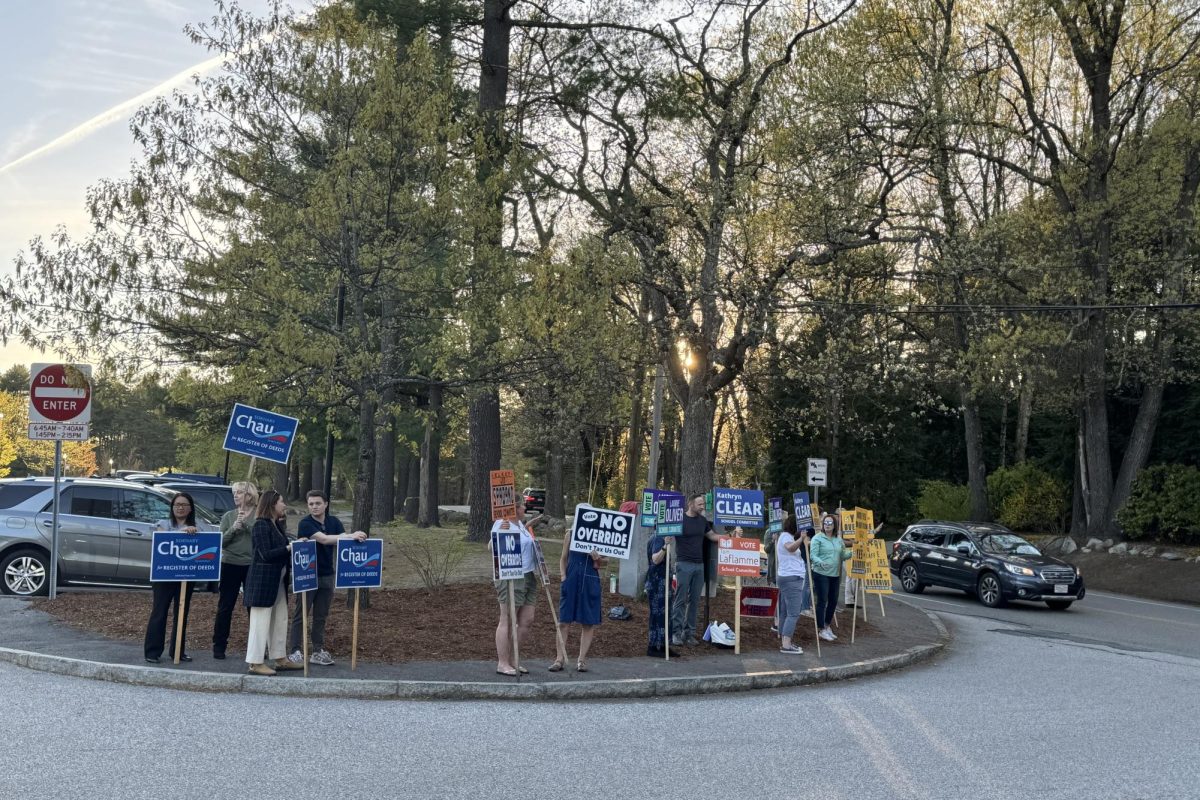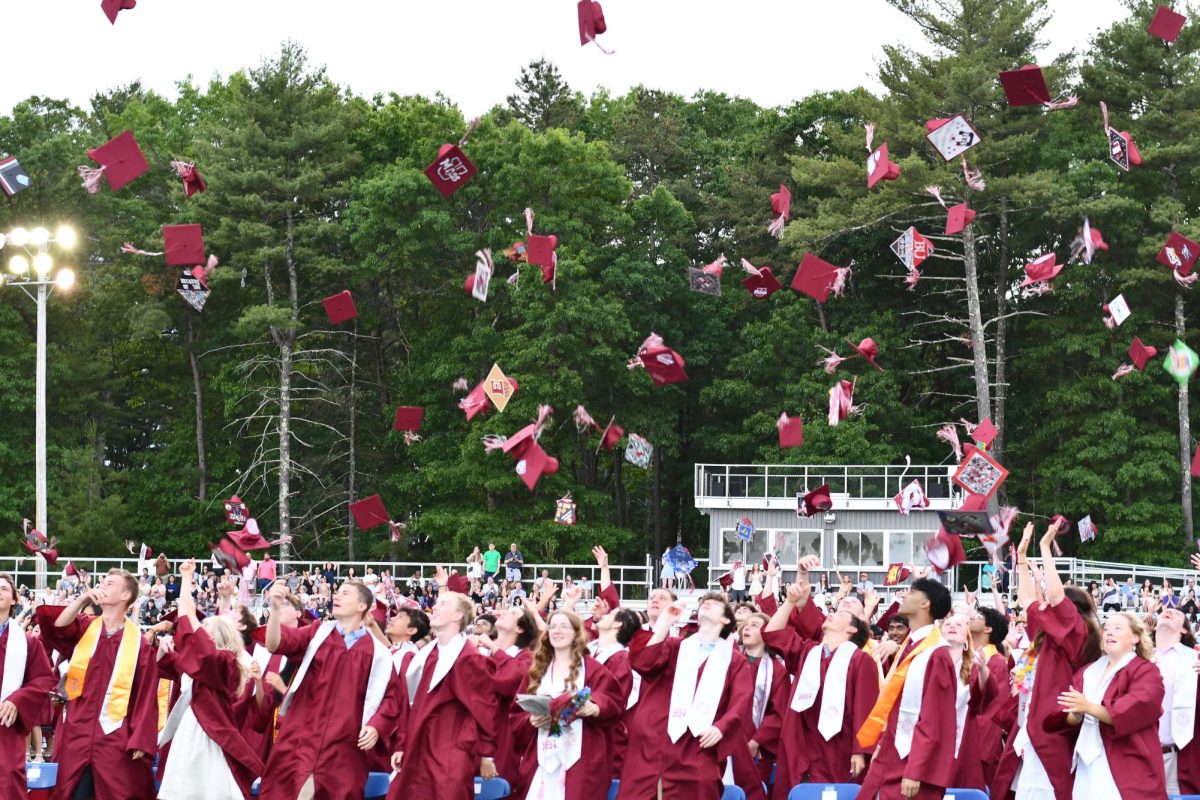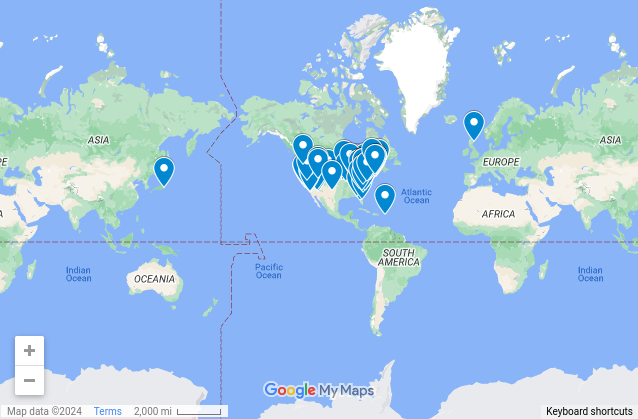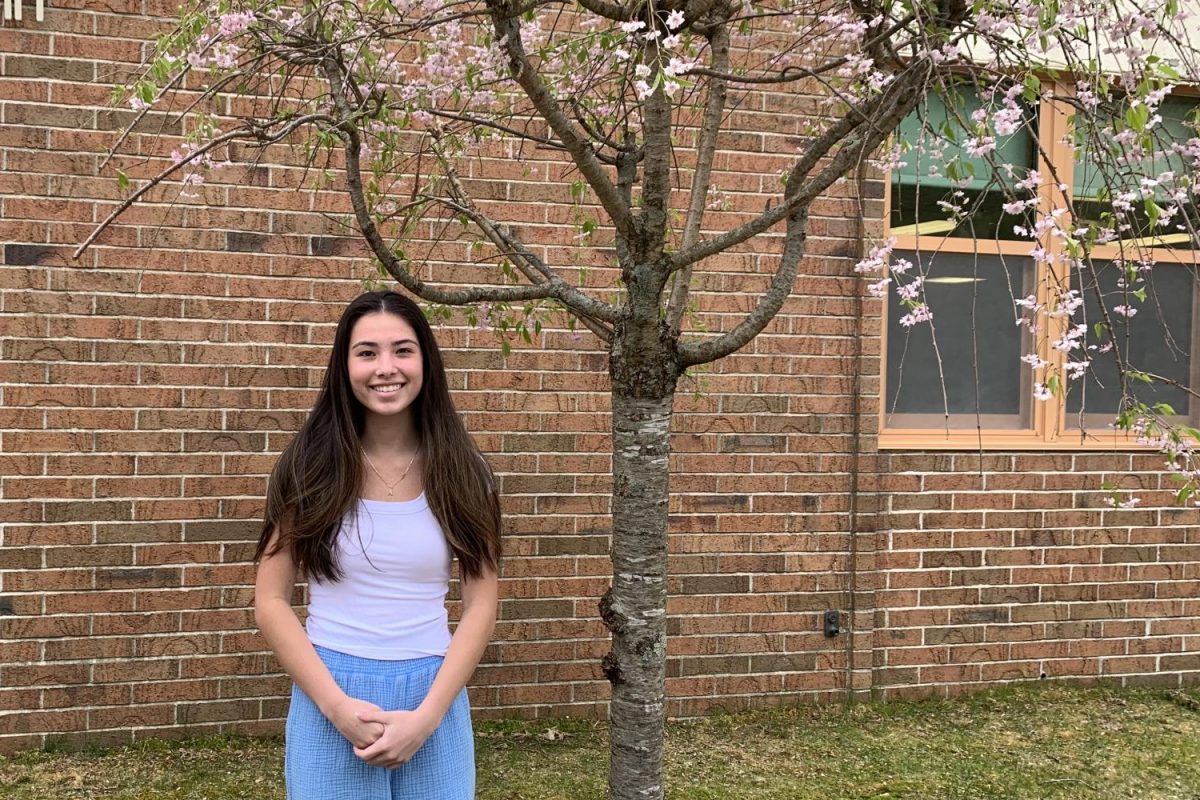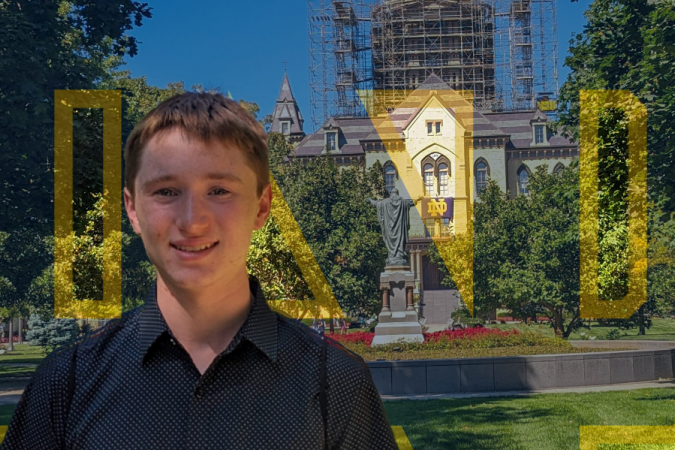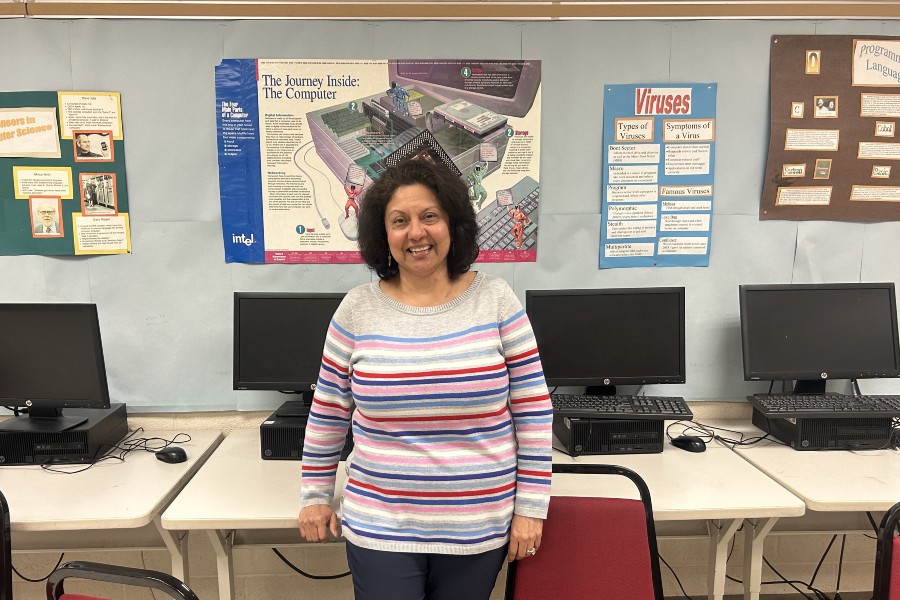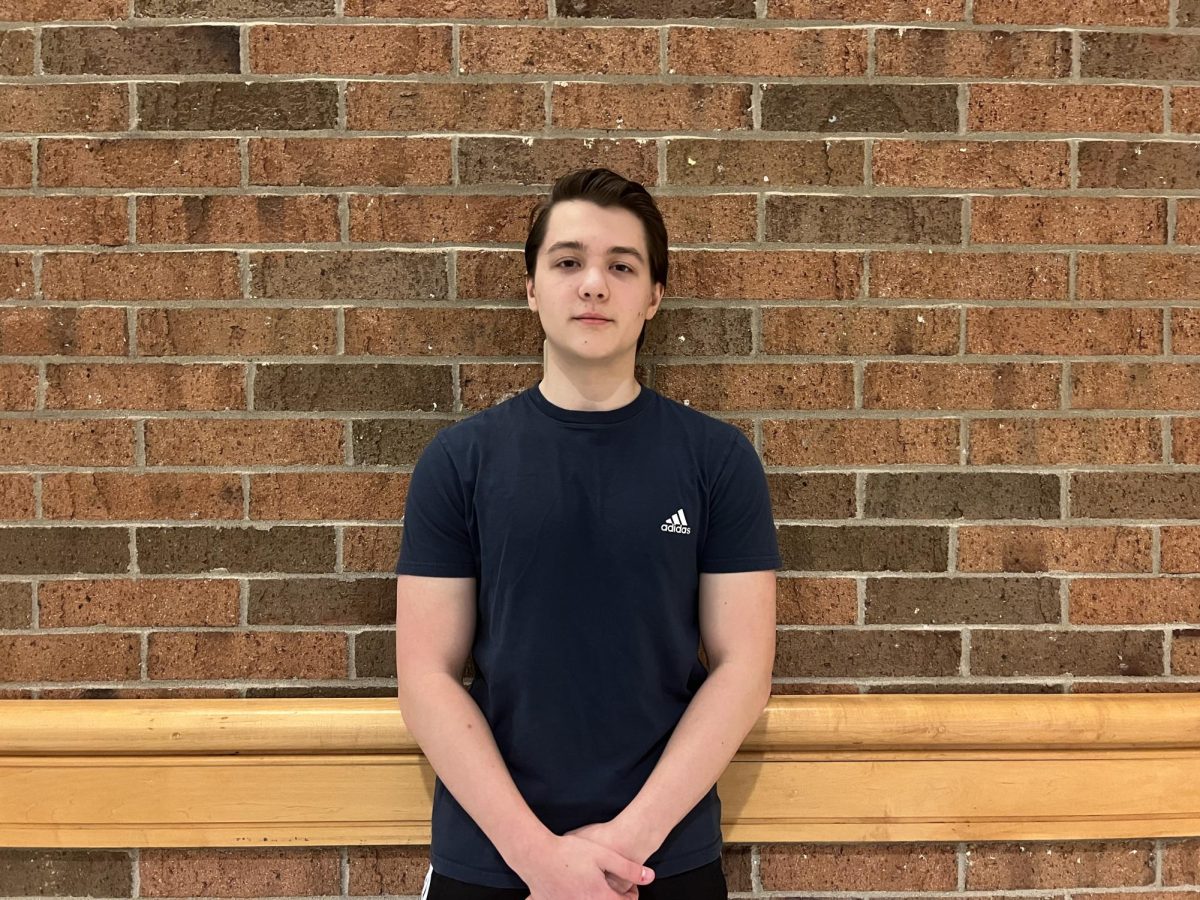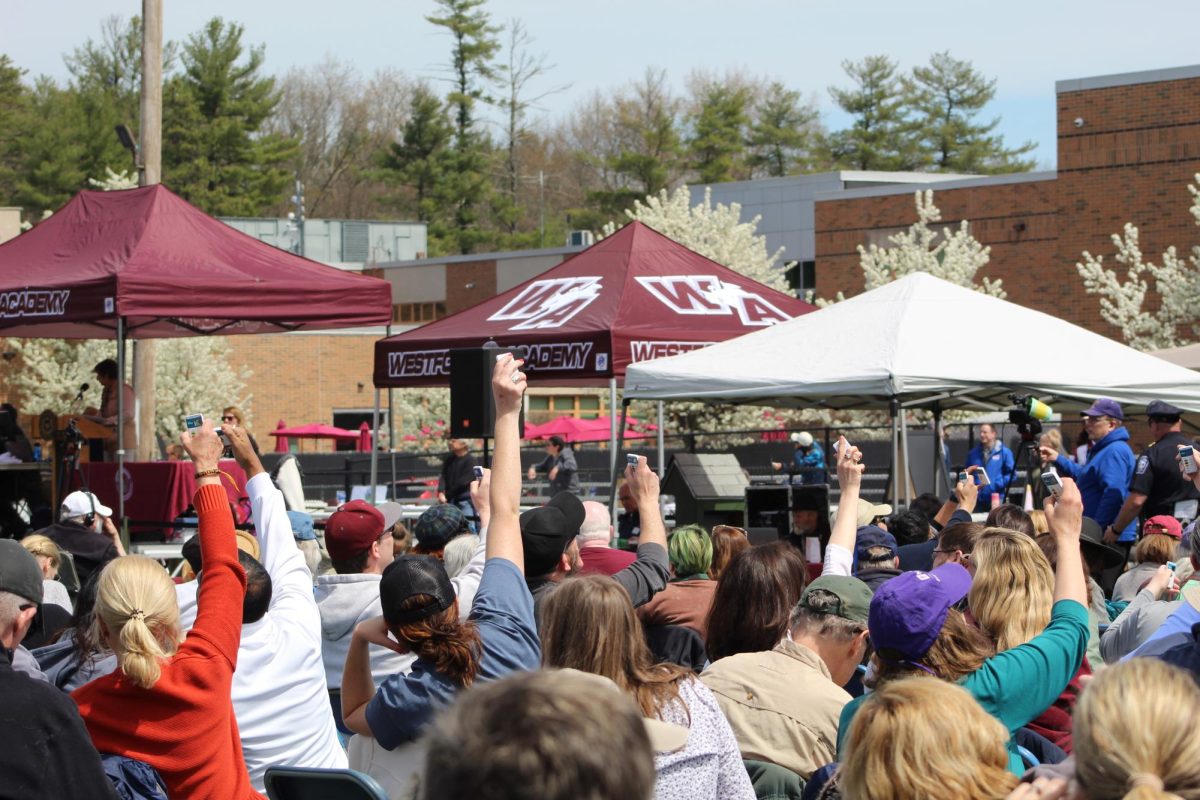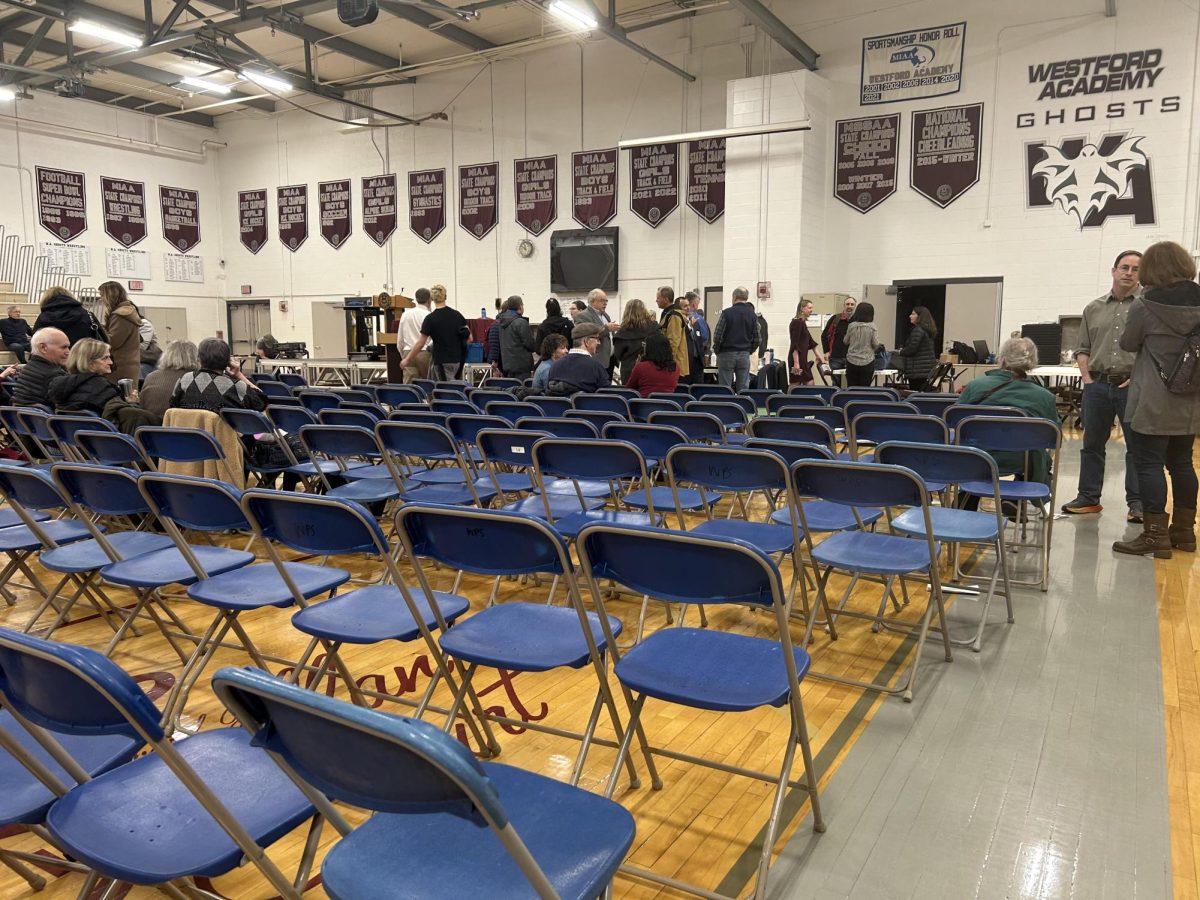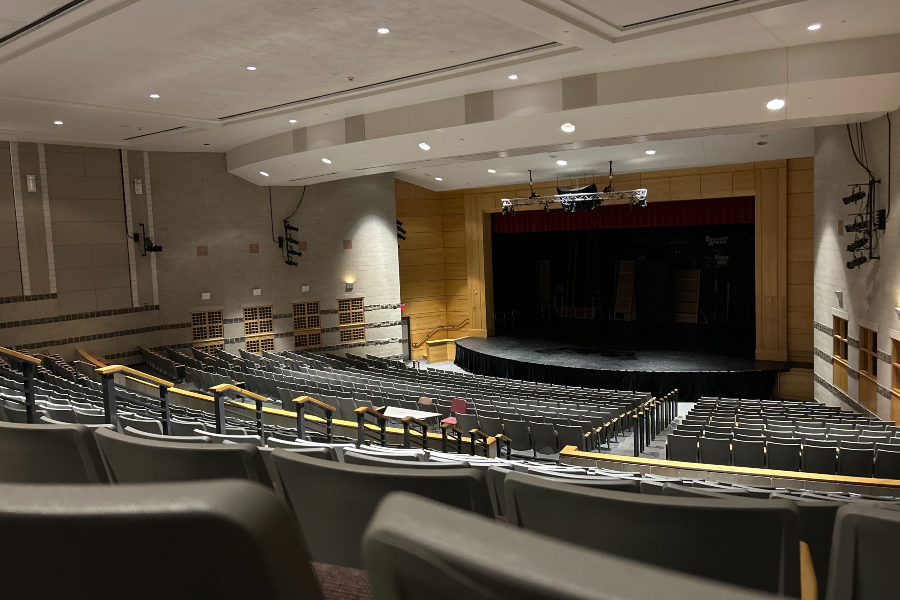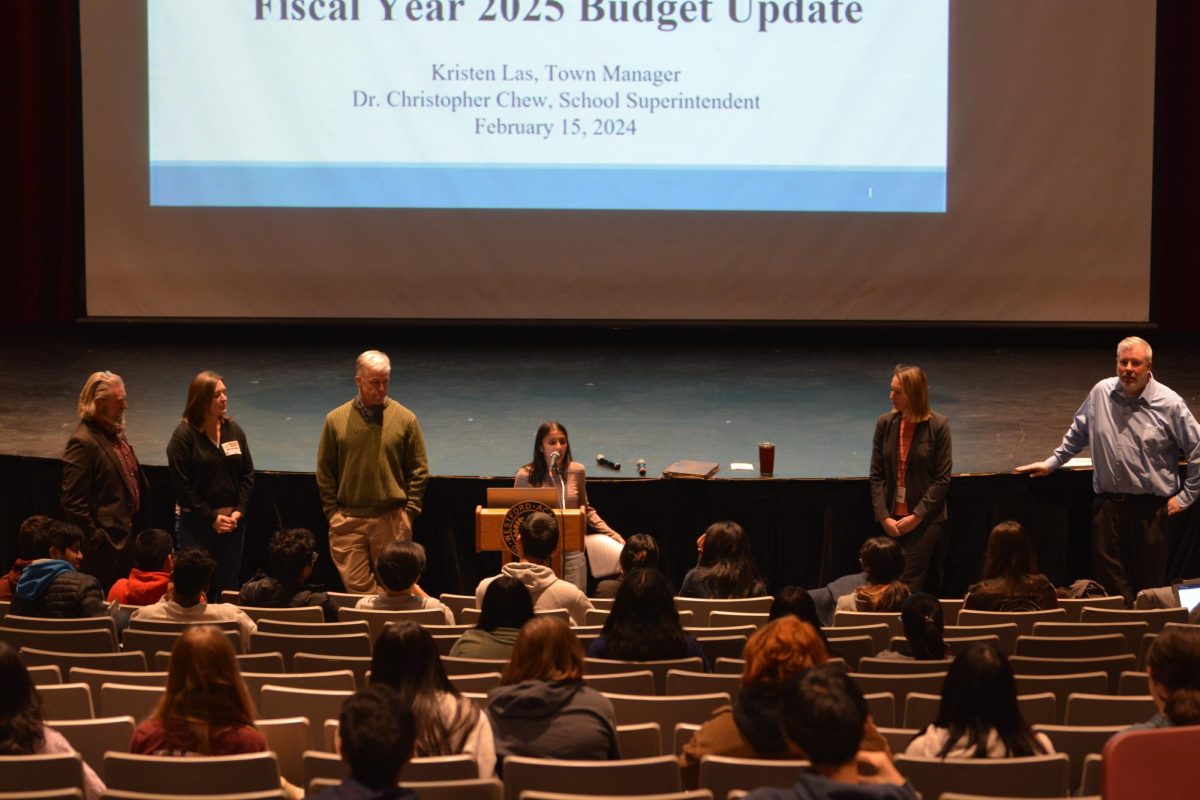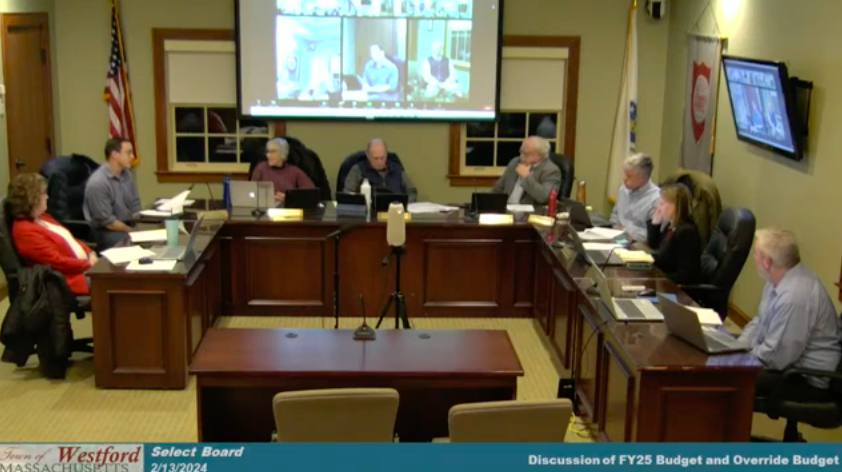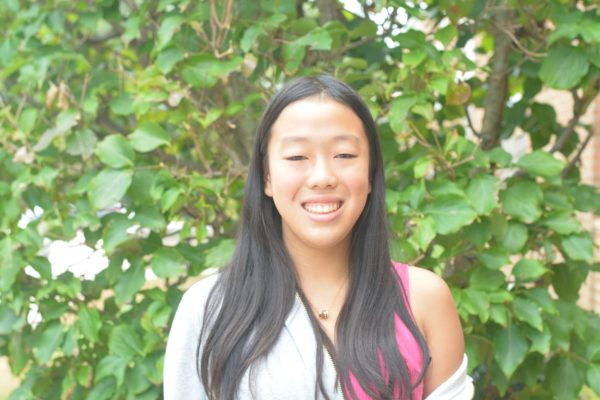During the Westford School Committee meeting on Dec. 4, committee members continued discussion of the FY25 (Fiscal Year 2025) budget projection, considered Stony Brook’s Environmental Leadership Club’s outreach initiative, and reviewed a post-graduate program proposal.
FY25 Budget Projection
Superintendent Dr. Christopher Chew presented a slideshow on the FY25 budget. The slideshow covered the FY25 budget timeline, development, and overview. It also included information about the projected school enrollment, changes from FY24, main revenue and expenses, and additional adjustments needed to remain within the budget.
Due to various budget challenges, Westford faces a $6-8 million deficit. To meet this deficit, the town will either have to make significant cuts or vote on an override with less cuts. An override is a permanent tax increase on Westford families that is made to raise revenue and reduce cuts on teaching positions and town services.
At the meeting, Chew presented two budget scenarios: one showing the projected school district cuts within the current available funds, and the other, which includes fewer cuts but requires an override, meaning a 7% tax increase to help with the town budget would be necessary. The override would bring the WPS budget from $67,207 to $70,505,124.
Registered voters will need to vote on the override at the town meeting on Mar. 23. and at the election on May 7.
Without the override, significant cuts would have to be made, including a district wide full time employee (FTE) reduction of 70.2 people. These reductions include 13.6 FTE at Westford Academy, 8.0 FTE at elementary schools, 2.0 FTE at middle schools, an additional 2.0 FTE reading teachers at middle schools, 3.0 FTE literary specialists, math and reading interventionists at elementary schools, and 3.0 FTE district-wide administrators. This means that enrollment adjustments would have to be made, including increasing class sizes and a decrease in elective options.
With the override, 27.2 FTE reductions would have to be made. These cuts include 2.0 FTE at the middle school level, 2.2 FTE at Westford Academy, and 4.0 FTE at the elementary level. Additionally, special education in-district transportation would be outsourced to a company service, meaning that the buses would come from an outside supplier, instead of an internal source. However, these cuts would have less of an impact on electives and class sizes than without the override.
School committee chair Valerie Young assured residents that with such a big decision for the town to make, a ballot committee will be formed to do advocacy work and educate the public on the vote.
Stony Brook’s Environmental Leadership Club’s Outreach Initiative
Founders of the Environmental Leadership Club and current freshmen Tanish Peddi, Ayush Warke, Perry Whitmore, and Ibsham Bhatra presented statistics on the Stony Brook cafeteria waste output to the committee and recommendations to help the school district reduce waste. The founders explained how the cafeteria waste at Stony Brook gets disposed of in two ways: into the landfill, where plastics contaminate our soil, water and air, or into the incinerator, a system that releases carbon dioxide.
The students collected school lunch trays for one month and estimated that approximately 29,000 pounds of trays, equivalent to about 490 trees, are incinerated or thrown into landfills yearly. As alternatives, the club proposed partnering with a commercial composting company for food and soiled kitchenware and replacing plastic lined trays and plastic fruit/vegetable cups with cardboard and compostable kitchenware. They also suggested setting up recycling for plastic beverages and clean cardboard kitchenware and for flexible plastic wrap and bags to be delivered to collection sites.
Additionally, the students brought up the increasingly prevalent issue of food waste at WPS. All students are forced to select either a fruit or vegetable to obtain their free school lunch, but most throw them away.
“I feel like the best way to [prevent students from throwing food away] is awareness,” Peddi said. “Right now, people are thinking about it individually, like ‘I’m throwing away an apple,’ but when people think about it as a whole or as a school, district, country, if they think about how many apples we are throwing away, that’s where it starts to make an impact on students.”
The committee agreed to continue the discussion in the spring, while also keeping the recommendations in mind and thinking about how to implement them.
Post Graduate Program Overview
Sejal Costa, WA’s student support leader presented on her post-graduate program proposal. The post-graduate program would help students with disabilities from the ages of 18-22 prepare for adult life. Costa proposed an integrated therapy model with built-in speech and language pathology, occupational therapy, and other individual needs. The program would include vocational skill development, health and wellness education, individual functional academics, communication, and daily living skills.
Though the program only has one student this year, in the following year, the program would gain eight students from the graduating class along with five to six out-of-district students. The number of students would increase from year to year, as those 13-14 students would stay in the program for an additional three years and more students would join.
Costa hopes to make the program more robust with a multitude of elements, such as having a lead teacher with transition process knowledge either by experience or having a Transition Endorsement, teaching both vocational and life skills like person-centered planning, self-determination, and community integration.
“It’s an approach to help prepare our students for adult life,” Costa said. “They have completed the state mandated academics and they’ve graduated high school, so now there’s this opportunity to really focus on both vocational, daily, and the applied academic skills.”


